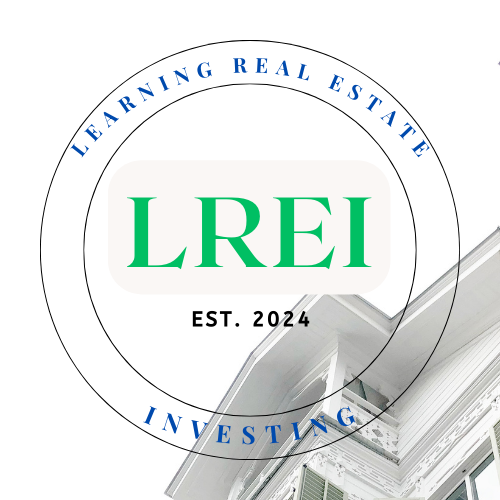Hard Money Loan vs Private Money Investor: Which One Should Fund Your Next Deal?
No fluff. Just the math, the tradeoffs, and when to use each.
You want straight talk, so here it is: both hard money and private money can get a deal across the finish line fast. The right choice depends on your timeline, leverage needs, experience level, and how much control you want—not on guru folklore.
This guide will help you choose the cleaner, cheaper capital for your next deal, and avoid the common traps that wipe out profits.
Quick Definitions (Plain English)
Hard Money Loan (HML)
A short-term, asset-based loan from a professional lender. They underwrite the property and deal structure, usually follow standardized terms, and often fund rehab money through draw schedules.
Private Money Investor (PMI)
An individual (or small group) lending their own cash. This can be structured as debt (interest payments) or equity (profit split). Terms are flexible, but depend heavily on the relationship and paperwork.
Head-to-Head Differences That Actually Matter
Speed and Certainty
Hard Money
Often closes in 5–10 business days if title is clean and your docs are ready. Rehab funds are typically released in draws after inspections.
Private Money
Can close same day to 3 days if the lender is ready and the relationship is solid. Less red tape, fewer institutional bottlenecks.
Bottom line: If you’re in a tight closing situation, private money usually wins on speed.
Cost (Typical Ranges)
Hard Money
Usually around 10–13% interest annually
Typically 2–4 points upfront
Plus lender fees, legal fees, draw inspection fees
Private Money (Debt)
Often around 8–12% interest
0–2 points depending on the lender
Usually fewer fees if you provide clean loan documents
Private Money (Equity)
Sometimes “0% interest” but they take 20–50% of net profit
This can be more expensive than it looks if the deal is strong
Bottom line: Private debt can be cheaper. Private equity can quietly become the most expensive capital you ever use.
Leverage (How Much They’ll Fund)
Hard Money
Common structures include:
-
Up to ~70% of ARV, or
-
85–90% of purchase
-
Rehab often funded in draws (sometimes 100% of rehab)
You usually bring the down payment, closing costs, and sometimes reserves.
Private Money
Whatever you negotiate. Some private lenders will cover 100% of purchase and rehab if:
-
The deal is strong
-
The collateral is clean
-
You have track record or extra security
Bottom line: Private money can be more flexible—if you can justify the risk and protect the lender.
Underwriting (What They Require)
Hard Money
Asset-based but professional. Expect:
-
Clean title
-
Verified scope and budget
-
Appraisal or BPO
-
Insurance and entity docs
-
Sometimes credit and background checks
-
Contractor requirements
Private Money
Often relationship-based. Many will fund based on:
-
A strong deal packet (comps, scope, exit plan)
-
A recorded lien
-
Clear risk protections
Bottom line: Hard money is more structured. Private money is more personal.
Paperwork and Control
Hard Money
Standard documents, strict timelines, and a structured draw process. Personal guarantees are common. They control the funding cadence.
Private Money
You can set terms. You should still use:
-
A promissory note
-
A deed of trust / mortgage
-
Recorded lien
If equity: you need a clean JV or operating agreement that defines decisions, exits, and profit splits.
Bottom line: Private money gives you flexibility, but only if your paperwork is tight.
Real Numbers Example: Same Deal, Two Funding Paths
Deal assumptions:
-
Purchase: $180,000
-
Rehab: $40,000
-
ARV: $300,000
-
Hold time: 6 months
-
Selling/agent costs: 8% ($24,000)
Option A: Hard Money Structure
Funding:
-
90% of purchase = $162,000
-
100% rehab = $40,000
Total funded: $202,000
Your cash in:
-
$18,000 down + closing costs
Costs:
-
Interest: 12% annual on $202,000 for 6 months = $12,120
-
Points: 2% of $202,000 = $4,040
-
Lender/closing fees: $2,000
Financing subtotal: $18,160
Total project costs:
$180,000 + $40,000 + $18,160 + $24,000 = $262,160
Projected profit:
$300,000 − $262,160 = $37,840
Option B: Private Money (Debt Only)
Funding:
-
$220,000 (covers purchase + rehab)
Costs:
-
Interest: 10% annual for 6 months = $11,000
-
Simple docs/closing: $1,000
-
Points: $0
Financing subtotal: $12,000
Total project costs:
$180,000 + $40,000 + $12,000 + $24,000 = $256,000
Projected profit:
$300,000 − $256,000 = $44,000
Takeaway: In this example, private money debt beats hard money by about $6,160.
But if a private lender wants an equity split, that advantage can disappear fast. Always run the net numbers.
When to Choose Hard Money
Hard money is a strong fit when:
-
You want structure and predictable systems
-
You’re newer and benefit from guardrails
-
You’re doing repeatable flips or BRRRR deals with standard rehabs
-
You want to keep 100% of the upside (even if your interest costs are higher)
Watch-outs:
-
Points and fees add up fast
-
Draw timing can slow contractors
-
Some lenders restrict property types or cap leverage
When to Choose Private Money
Private money is best when:
-
You need to close fast and avoid delays
-
The deal is unusual (heavy rehab, rural comps, odd property type)
-
You have a network and can protect the lender properly
-
You want flexible structures (deferred interest, low points, even 100% funding with security)
Watch-outs:
-
Equity partners can be “cheap” upfront but expensive at the end
-
Always use attorney-drafted agreements
-
Clearly define decisions, exits, buyouts, and what happens if the deal runs long
Term Sheet “Cheat Codes” (What to Negotiate)
Hard Money:
-
Points: push for 2 or less (especially if you’ll do repeat deals)
-
Interest: negotiate lower rates for lower leverage or fast timelines
-
Draws: ask for faster inspection and same/next-day draw releases
-
Fees: cap junk fees and consolidate closing fees
-
Extensions: pre-negotiate (example: 0.5–1 point per 30 days)
Private Money:
-
If debt: 8–12% interest, 0–1 point, interest-only, balloon at sale/refi
-
If equity: define decision-making, capital calls, profit splits, and buyout rights
-
Always: record the lien, name the lender on insurance properly, and write everything down
Compliance and Risk (Don’t Be Sloppy)
-
Close through escrow and record the lien
-
Keep clean use-of-funds documentation
-
Use the right insurance (builders risk / vacant property) with correct mortgagee language
-
If you’re raising from multiple people or marketing for money publicly, talk to a securities attorney
The goal is simple: protect the lender, protect yourself, and avoid avoidable legal mess.
So Which One Is Best?
There’s no universal winner. Use this decision path:
Need speed + flexibility + trust?
Choose private money debt.
Newer operator or prefer a bank-like process?
Choose hard money.
Tight on down payment?
Private may cover more—but price the true cost, especially if equity is involved.
Building a long-term investing brand?
Hard money can help you systemize early. Add private money as your track record grows.
Action Plan: What to Do Next
-
Price your capital on three deals: hard money vs private debt vs private equity. Pick the cheapest net option.
-
Create a one-page lender packet: comps, rehab scope, budget, exit plan, timeline, and risk protections.
-
Standardize your documents: note, deed of trust, insurance endorsements, and PG language (if needed).
-
Negotiate extensions now—not at day 179.
-
Track KPIs: time-to-close, time-to-first-draw, total carrying cost, net profit per dollar deployed.
Bottom line: Choose the money that keeps profit in your pocket and control in your hands without blowing your timeline.
Call to Action: Analyze Your Funding Like a Pro Before You Commit
Before you borrow a dime, you need three answers:
Will it cash flow?
Is the rehab realistic?
Does the deal actually make sense?
This free tool breaks it down step by step—so you can analyze deals in minutes, not hours. Built for beginners. Used by serious investors.
👉 Analyze your next deal (free)
🔗 https://learningrealestateinvesting.com/analyze-deals-in-minutes/


Leave a Reply